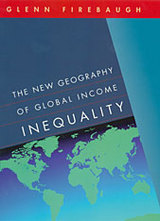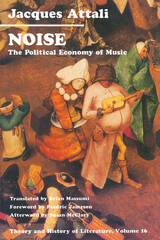9 start with N start with N

Some central questions in the natural and social sciences can't be answered by controlled laboratory experiments, often considered to be the hallmark of the scientific method. This impossibility holds for any science concerned with the past. In addition, many manipulative experiments, while possible, would be considered immoral or illegal. One has to devise other methods of observing, describing, and explaining the world.
In the historical disciplines, a fruitful approach has been to use natural experiments or the comparative method. This book consists of eight comparative studies drawn from history, archeology, economics, economic history, geography, and political science. The studies cover a spectrum of approaches, ranging from a non-quantitative narrative style in the early chapters to quantitative statistical analyses in the later chapters. The studies range from a simple two-way comparison of Haiti and the Dominican Republic, which share the island of Hispaniola, to comparisons of 81 Pacific islands and 233 areas of India. The societies discussed are contemporary ones, literate societies of recent centuries, and non-literate past societies. Geographically, they include the United States, Mexico, Brazil, western Europe, tropical Africa, India, Siberia, Australia, New Zealand, and other Pacific islands.
In an Afterword, the editors discuss how to cope with methodological problems common to these and other natural experiments of history.


The telegraph and the telephone were the first electrical communications networks to become hallmarks of modernity. Yet they were not initially expected to achieve universal accessibility. In this pioneering history of their evolution, Richard R. John demonstrates how access to these networks was determined not only by technological imperatives and economic incentives but also by political decision making at the federal, state, and municipal levels.
In the decades between the Civil War and the First World War, Western Union and the Bell System emerged as the dominant providers for the telegraph and telephone. Both operated networks that were products not only of technology and economics but also of a distinctive political economy. Western Union arose in an antimonopolistic political economy that glorified equal rights and vilified special privilege. The Bell System flourished in a progressive political economy that idealized public utility and disparaged unnecessary waste.
The popularization of the telegraph and the telephone was opposed by business lobbies that were intent on perpetuating specialty services. In fact, it wasn’t until 1900 that the civic ideal of mass access trumped the elitist ideal of exclusivity in shaping the commercialization of the telephone. The telegraph did not become widely accessible until 1910, sixty-five years after the first fee-for-service telegraph line opened in 1845.
Network Nation places the history of telecommunications within the broader context of American politics, business, and discourse. This engrossing and provocative book persuades us of the critical role of political economy in the development of new technologies and their implementation.

Walter W. Heller was Chairman of the Council of Economic Advisers throughout President Kennedy's Administration and during the first year of President Johnson's. Here, in a book of immediate importance and great vision, he examines the profound and rapid changes that are taking place during the 1960's in American economic policy. In this decade economics has come of age, and the Keynesian revolution has been completed.
The economic health and stability of the nation are now among the President's major concerns. The need to formulate policy in this area has thrust the political economist into a new and leading role as Presidential adviser, and Mr. Heller is in a unique position to offer an inside account of these developments.
In his first book since leaving Washington to return to the University of Minnesota, he describes the emergence of Presidents Kennedy and Johnson as practicing economists, evaluates their economic policies, and sketches the patterns that are being established for the future. He tells how the grip of economic myths and false fears has been loosened in the government, with the result that economic policy is focused on sustaining prosperity without inflation, on speeding economic growth, and on realizing the fruits of true fiscal abundance.
Finally, Mr. Heller for the first time discusses in detail his own plan for revenue sharing, a new method of enlarging the flow of Federal funds to the states. The plan offers the exciting promise of a stronger fiscal base for our federalism, not only by expanding the present system of Federal grants, but also--when the demands of Vietnam relent--by developing new forms of fiscal support for state and local government.
Parts of this book were delivered by Mr. Keller as the Godkin Lectures at Harvard University in March 1966.

The surprising finding of this book is that, contrary to conventional wisdom, global income inequality is decreasing. Critics of globalization and others maintain that the spread of consumer capitalism is dramatically polarizing the worldwide distribution of income. But as the demographer Glenn Firebaugh carefully shows, income inequality for the world peaked in the late twentieth century and is now heading downward because of declining income inequality across nations. Furthermore, as income inequality declines across nations, it is rising within nations (though not as rapidly as it is declining across nations). Firebaugh claims that this historic transition represents a new geography of global income inequality in the twenty-first century.
This book documents the new geography, describes its causes, and explains why other analysts have missed one of the defining features of our era—a transition in inequality that is reducing the importance of where a person is born in determining his or her future well-being.

Ortner tracked down nearly all 304 of her classmates. She interviewedabout 100 in person and spoke with most of the rest by phone, recording her classmates’ vivid memories of time, place, and identity. Ortner shows how social class affected people’s livesin many hidden and unexamined ways. She also demonstrates that the Class of ‘58’s extreme upward mobility must be understood in relation to the major identity movements of the twentieth century—the campaign against anti-Semitism, the Civil Rights movement, and feminism.
A multisited study combining field research with an interdisciplinary analytical framework, New Jersey Dreaming is a masterly integration of developments at the vanguard of contemporary anthropology. Engaging excerpts from Ortner's field notes are interspersed throughout the book. Whether recording the difficulties and pleasures of studying one's own peer group, the cultures of driving in different parts of the country, or the contrasting experiences of appointment-making in Los Angeles and New York, they provide a rare glimpse into the actual doing of ethnographic research.

In our globalizing world, the movement of people and resources has accelerated, giving rise to transnational connections and interdependencies. New Patterns for Mexico examines novel and emerging patterns of United States giving to Mexico and its impact on equitable development. Last year alone, Mexican migrants living in the United States sent billions of dollars back to families and relatives living in Mexico. Most of these funds were for private consumption, but more and more diaspora resources support social and philanthropic endeavors in their country of origin. This bilingual volume asks: What are these new patterns of diaspora giving and how do they affect equitable development in Mexico?
Through its Global Philanthropy Program, the Global Equity Initiative of Harvard University aims to advance knowledge about global philanthropy and the role of private philanthropic investments in furthering global equity. This volume, one in a series on diaspora giving, builds upon the earlier work of Diaspora Philanthropy: Perspectives on India and China and continues the Program's research series on the relationship between diaspora engagement and equitable development.

Following on F. A. Hayek's previous work Studies in Philosophy, Politics, and Economics (1967), New Studies in Philosophy, Politics, Economics and the History of Ideas collects some of Hayek's most notable essays and lectures dealing with problems of philosophy, politics and economics, with many of the essays falling into more than one of these categories. Expanding upon the previous volume the present work also includes a fourth part collecting a series of Hayek's writings under the heading 'History of Ideas.'
Of the articles contained in this volume the lectures on 'The Errors of Constructivism' (chapter 1) and 'Competition as a Discovery Procedure' (chapter 12) have been published before only in German, while the article on 'Liberalism' (chapter 9) was written in English to be published in an Italian translation in the Enciclopedia del Novicento by the Istituto della Enciclopedia Italiana at Rome.

READERS
Browse our collection.
PUBLISHERS
See BiblioVault's publisher services.
STUDENT SERVICES
Files for college accessibility offices.
UChicago Accessibility Resources
home | accessibility | search | about | contact us
BiblioVault ® 2001 - 2024
The University of Chicago Press









